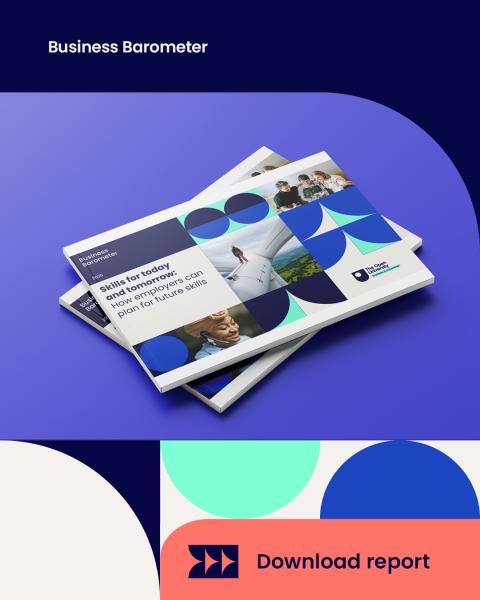Mind the Gap: Northern Ireland Employers and Gen Z Out of Sync on Skills

A new report from The Open University highlights a growing mismatch between Northern Ireland employers and the next generation of workers — a gap that could be hindering efforts to tackle Northern Ireland’s persistent skills shortages.
The ‘Business Barometer: Skills for today and tomorrow: how employers can plan for future skills’, based on a survey of over 2,000 UK organisation leaders and 1,000 Gen Z adults, reveals that:
- 48% of Northern Ireland organisations are currently experiencing a skills shortage.
- Yet only 23% have initiatives in place to recruit, retain or train under-25s.
Meanwhile, Gen Z in Northern Ireland are aware of the skills challenges and are eager to contribute and up-skill. They may not be receiving the guidance or support they need to become truly work-ready:
- 62% are actively considering careers in sectors with the greatest skills needs.
- 79% say they would stay longer with an employer that invests in training.
- 65% have never been told they lack specific skills — despite 39% of employers citing “work readiness” as a key barrier to hiring.
This disconnect is especially concerning as demand grows for AI and sustainability-related skills. While half of Northern Ireland’s Gen Z (51%) are already working in or interested in AI, 34% of employers admit they are not confident in delivering their AI strategies.
Baroness Martha Lane Fox CBE, Chancellor at The Open University commented:
“Employers have an incredible opportunity — and responsibility — to shape the future workforce. The talent is out there. Young people are motivated, they’re digitally savvy, and they want to contribute. But they need clear training pathways, practical support, and employers willing to invest.
“While there are economic challenges at this moment for employers, the smartest organisations won’t just wait for skills to arrive — they’ll build them, inclusively and proactively, to fuel growth and resilience.”
Despite political debate around ED&I (Equality, Diversity & Inclusion), support for inclusion remains strong in Northern Ireland.
- 83% of employers say ED&I is important to their organisation.
- 48% believe it will become even more important over the next five years.
Yet 31% have no initiatives in place to support underrepresented or disadvantaged groups, including returners, career changers, and workers with disabilities or neurodiversities. This represents a missed opportunity to widen the talent pipeline and reduce economic inactivity.
Michael Bower, Assistant Director, Ireland (Student Success & External Engagement) at The Open University, added:
“There’s a clear mismatch between employer intentions and practical action. But there’s also a real opportunity. By building structured skills plans, partnering with education providers and investing in flexible training, employers can unlock diverse talent and future-proof their workforce.”
The Business Barometer has tracked the UK’s skills shortage for nearly a decade. While the proportion of affected employers has stabilised, the issue remains widespread:
- 37% of NI employers expect the skills gap to worsen over the next five years.
- 56% say recruitment and training is more difficult due to rising national insurance.
- 43% cite the impact of minimum wage increases.
- 65% point to broader economic uncertainty.
- 37% report increased workloads on existing staff.
- 34% lack confidence in delivering AI strategies.
Despite this, fewer than half (40%) of employers have a formal skills plan in place. And while training is proven to boost retention, 31% fear trained staff may leave.
To learn how organisations can address the skills gap, visit https://business.open.ac.uk/business-barometer
